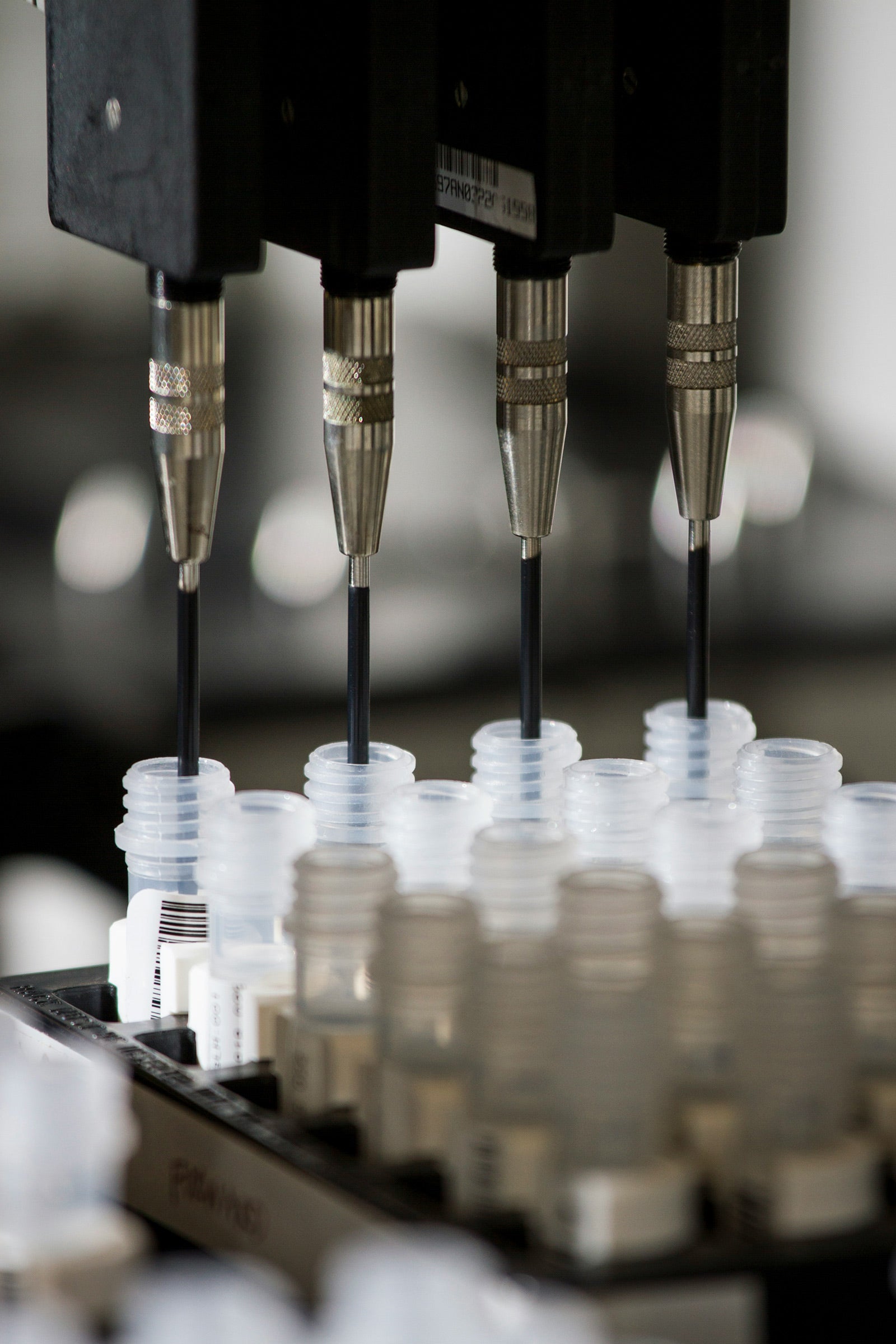The world of gut health has experienced a remarkable transformation in recent years. Scientists have discovered that the trillions of microorganisms living in our digestive tract—collectively known as the gut microbiome—play a far more significant role in our overall health than previously imagined. This "microbiome revolution" has revealed fascinating connections between these tiny inhabitants and everything from immune function to mental well-being. At the heart of this intricate ecosystem lies a crucial relationship: the partnership between digestive enzymes and beneficial gut bacteria.
Understanding Your Gut Microbiome: A Complex Ecosystem
Your gut microbiome is essentially a bustling metropolis of microorganisms residing primarily in your large intestine. This diverse community includes bacteria, fungi, viruses, and other microbes that work together to support your health in remarkable ways. Think of it as a well-organized city where different neighborhoods (bacterial species) have specialized functions that benefit the entire community.
Recent research shows that your gut houses approximately 100 trillion microorganisms, with bacteria making up the majority of this population. Scientists have identified two distinct groups within this community: the Foundation Guild, which consists of beneficial bacteria that maintain gut health, and the Pathobiont Guild, which includes potentially harmful bacteria that are kept in check when the microbiome is balanced.
The Foundation Guild bacteria are particularly important because they break down dietary fibers and produce short-chain fatty acids like butyrate, which serve as food for your intestinal cells and help maintain the gut barrier. When this beneficial group dominates, your gut stays healthy. However, when harmful bacteria take over, it can lead to a condition called dysbiosis, which has been linked to various health issues.
The Enzyme-Microbiome Connection: A Symbiotic Partnership
Digestive enzymes and gut bacteria work together in a sophisticated partnership that optimizes your digestive health. Enzymes can influence gut microbial communities in several important ways, including promoting the growth of beneficial bacteria, directly affecting harmful microbes, and modulating bacterial interaction networks.
Here's how this partnership works:
Enzyme Support for Beneficial Bacteria: When enzymes break down complex carbohydrates and fibers, they create fermentable substrates that support the growth of beneficial bacteria. For instance, when xylanase enzymes break down plant fibers called xylans, they release nutrients that beneficial bacteria can use as food, promoting their growth and activity.
Preserving Important Fibers: Not all fibers should be broken down. Recent research indicates that cellulose fiber plays an important role in the development and maturation of the gut microbiome, inducing cellular anti-inflammatory mechanisms from gut bacteria and increasing probiotic diversity. This is why advanced enzyme formulations now focus on breaking down specific fibers while preserving others that feed beneficial bacteria.
Creating Beneficial Metabolites: Gut bacteria produce short-chain fatty acids as byproducts when they break down certain fibers. These fatty acids feed the cells in your gut lining and help maintain a healthy gut environment. Enzymes support this process by ensuring that the right nutrients reach these beneficial bacteria.
Key Enzyme Categories That Support Gut Health
Several types of digestive enzymes play crucial roles in supporting your microbiome:
Protein-Digesting Enzymes (Proteases): These enzymes break down proteins into smaller peptides and amino acids. When proteins are properly digested, they're less likely to reach the colon where they could feed harmful bacteria. Proteases with DPP-IV activity are particularly important as they help break down certain protein fragments that can cause digestive discomfort.
Carbohydrate-Digesting Enzymes: This category includes several important enzymes:
-
Amylase breaks down starches into simpler sugars
-
Lactase helps digest lactose from dairy products
-
Alpha-galactosidase assists with digesting complex sugars in beans and vegetables
-
Invertase helps break down sucrose
Fat-Digesting Enzymes (Lipases): These enzymes are essential for breaking down dietary fats and oils, ensuring proper absorption of fat-soluble vitamins.
Fiber-Specific Enzymes: Xylanase is particularly important because it breaks down xylans (fiber structures that tie cellulose fibers together) into xylose sugar, which isn't absorbed in the human gut and doesn't contribute to blood sugar spikes. When xylan is broken down, cellulose fibers are released and used normally by gut bacteria.
The Science Behind Enzyme-Microbiome Interactions
Recent scientific studies have revealed that enzymes can work with probiotics to ferment non-digestible substances, creating oligosaccharides that support the growth of beneficial bacteria. This process has been shown to have synergistic effects when enzymes and beneficial bacteria work together.
The pancreas serves as the enzyme "powerhouse" of digestion, producing the most important digestive enzymes that break down carbohydrates, proteins, and fats. However, many people don't produce enough enzymes naturally, or their bodies don't release enzymes as efficiently as they should. This is where supplemental enzymes can play a supportive role.
Orally administered enzymes can have profound effects on the composition of the gut microbiota and may serve as an appealing alternative for supporting digestive health. The key is choosing the right combination of enzymes that work harmoniously with your existing gut bacteria.
Modern Enzyme Innovation: Targeted Support for Gut Health
Today's enzyme supplements are far more sophisticated than those of the past. Advanced formulations now focus on removing enzymes that might break down beneficial fibers while including those that support optimal digestion without disrupting the gut ecosystem.
For example, modern enzyme blends might exclude cellulase (which breaks down cellulose fiber) because research shows that cellulose supports beneficial bacteria growth. Instead, they include higher amounts of xylanase, which selectively breaks down problematic fiber structures while preserving the beneficial ones.
This targeted approach represents a significant advancement in enzyme science, moving from a "break down everything" philosophy to a more nuanced "support the ecosystem" approach.
Supporting Your Microbiome Through Enzyme Supplementation
When considering enzyme support for your gut health, several factors are important:
Timing Matters: Taking enzymes at the beginning of meals allows them to work alongside your body's natural digestive processes, supporting optimal breakdown of foods before they reach your gut bacteria.
Individual Needs Vary: No one dose is suitable for all. Dosing is not calculated based on age or body weight, but by how much is eaten in any one meal. Larger meals or foods that may not be well-tolerated might require higher enzyme support.
Comprehensive Support: The most effective enzyme supplements contain multiple enzyme types that work together to support the digestion of proteins, carbohydrates, fats, and specific food components like gluten, casein, and phenolic compounds found in fruits and vegetables.
The Future of Gut Health: Precision Microbiome Support
As we move into 2025, the field of gut health continues to evolve rapidly, with increasing awareness of the gut's impact on overall health and mental well-being. In the coming years, molecular analysis of microbiomes may be implemented in clinical routines to help develop personalized nutritional therapies.
This personalized approach to gut health will likely include targeted enzyme support based on individual microbiome profiles, dietary patterns, and specific health goals. The goal is to create a harmonious relationship between supplemental enzymes and beneficial gut bacteria that optimizes both digestion and overall health.
Supporting Your Digestive Ecosystem
Understanding the relationship between enzymes and gut bacteria empowers you to make informed decisions about your digestive health. By choosing enzyme supplements that work with—rather than against—your beneficial gut bacteria, you can support optimal digestion while nurturing a thriving microbiome.
Remember that gut health is highly individual, and what works for one person may not work for another. The key is finding the right balance of enzyme support that complements your unique digestive needs and supports your beneficial gut bacteria.
As research continues to unveil the complex relationships within our gut ecosystem, one thing remains clear: the partnership between digestive enzymes and beneficial bacteria represents a powerful opportunity to support overall health and well-being.
Ready to Support Your Digestive Ecosystem?
Discover how Houston Enzymes can help optimize your gut health with scientifically formulated enzyme blends designed to work harmoniously with your beneficial gut bacteria.
TriEnza® offers comprehensive digestive support with its advanced enzyme blend that includes protein-digesting enzymes with DPP-IV activity, xylanase for selective fiber breakdown, and enzymes for carbohydrates, fats, and phenolic compounds. This broad-spectrum formula supports digestion while preserving beneficial fibers that feed your gut bacteria.
Zyme Prime™ provides targeted support for carbohydrate and fat digestion, including lactase for dairy sensitivity and alpha-galactosidase for reducing digestive discomfort from beans and vegetables.
AFP Peptizyde® focuses specifically on protein digestion with its advanced protease blend, helping ensure proteins are properly broken down before reaching the colon.
Each Houston Enzymes product is formulated by Dr. Devin Houston, a biochemist with over 30 years of enzyme research experience, ensuring you receive science-based support for your digestive health.
These statements have not been evaluated by the Food and Drug Administration. These products are not intended to diagnose, treat, cure, or prevent any disease. Individual results may vary. Consult your healthcare provider before starting any new supplement regimen.


